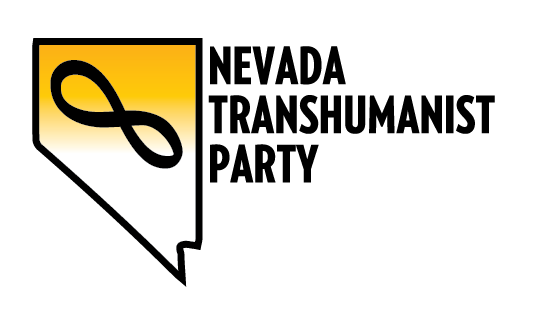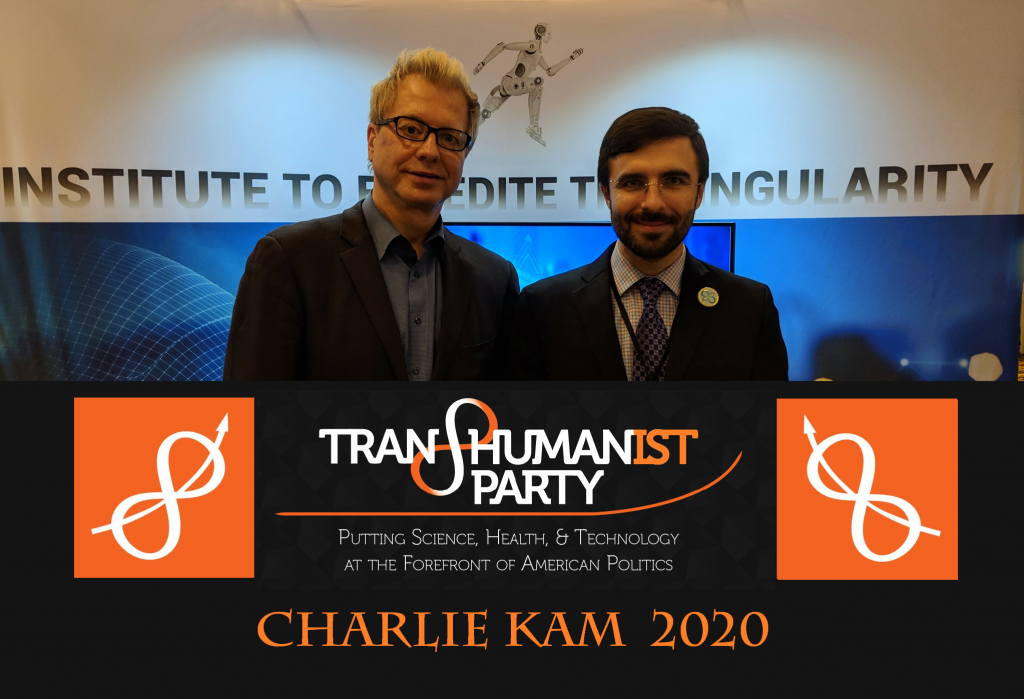U.S. Transhumanist Party Positions on 2020 California Ballot Propositions

Gennady Stolyarov II
The United States Transhumanist Party offers the following brief statements of position on the ballot propositions currently before California voters in the 2020 General Election.
Summary
California Proposition 14 – Stem Cell Research Institute Bond Initiative: Support
California Proposition 15 – Tax on Commercial and Industrial Properties for Education and Local Government Funding Initiative: Oppose
California Proposition 16 – Repeal Proposition 209 Affirmative Action Amendment: Oppose
California Proposition 17 – Voting Rights Restoration for Persons on Parole Amendment: Support
California Proposition 18 – Primary Voting for 17-Year-Olds Amendment: Support
California Proposition 19 – Property Tax Transfers, Exemptions, and Revenue for Wildfire Agencies and Counties Amendment: Neutral
California Proposition 20 – Criminal Sentencing, Parole, and DNA Collection Initiative: Oppose
California Proposition 21 – Local Rent Control Initiative: Oppose
California Proposition 22 – App-Based Drivers as Contractors and Labor Policies Initiative: Support
California Proposition 23 – Dialysis Clinic Requirements Initiative: Oppose
California Proposition 24 – Consumer Personal Information Law and Agency Initiative: Neutral
California Proposition 25 – Replace Cash Bail with Risk Assessments Referendum: Support
California Ballot Proposition 14 – Stem Cell Research Institute Bond Initiative – Support
Summary of Ballot Proposition:
“● Authorizes $5.5 billion in state general obligation bonds to fund grants from the California Institute of Regenerative Medicine to educational, non-profit, and private entities for: stem cell and other medical research, including training; stem cell therapy development and delivery; research facility construction; and associated administrative expenses.
● Dedicates $1.5 billion to research and therapy for Alzheimer’s, Parkinson’s, stroke, epilepsy, and other brain and central nervous system diseases and conditions.
● Appropriates General Fund moneys to pay bond debt service.
● Expands programs promoting stem cell and other medical research, therapy development and delivery, and student and physician training and fellowships.”
Position of the U.S. Transhumanist Party: The U.S. Transhumanist Party strongly supports California Ballot Proposition 14, which will allocate major funds for life-saving and life-extending research into stem-cell therapies as well as the fight against ailments such as Alzheimer’s disease, Parkinson’s disease, stroke, and epilepsy. The U.S. Transhumanist Party has long supported significant increases in research funding in all of the aforementioned areas. Indeed, Article VI, Section V, of the U.S. Transhumanist Party Platform reads: “The United States Transhumanist Party supports concerted research in effort to eradicate disease and illness that wreak havoc upon and cause death of sapient beings. We strongly advocate the increase and redirection of research funds to conduct research and experiments and to explore life, science, technology, medicine, and extraterrestrial realms to improve all sentient entities.” Ballot Proposition 14 is an example of the precise kinds of research funding that are referenced in Article VI, Section V.
California Ballot Proposition 15 – Tax on Commercial and Industrial Properties for Education and Local Government Funding Initiative – Oppose
Summary of Ballot Proposition:
“● Increases funding for K-12 public schools, community colleges, and local governments by requiring that commercial and industrial real property be taxed based on current market value, instead of purchase price.
● Exempts from taxation changes: residential properties; agricultural land; and owners of commercial and industrial properties with combined value of $3 million or less.
● Any additional educational funding will supplement existing school funding guarantees.
● Exempts small businesses from personal property tax; for other businesses, provides $500,000 exemption”
Position of the U.S. Transhumanist Party: The U.S. Transhumanist Party opposes property taxes and thus opposes any net increases to property taxes. Article VI, Section XXXVI, of the USTP Platform states that “all taxes on land and property should be abolished.” California Ballot Proposition 15 would greatly increase property taxes on net by changing the basis for taxation from the purchase price to the current market value. Moreover, this shift would unduly burden businesses in California, since the market value of most California properties is artificially inflated due to irrational restrictions on new development, which greatly constrain the supply of buildings of every sort. While the aspect of Proposition 15 to exempt small businesses from personal property tax is admirable – since personal property taxes also should not exist – it is nonetheless possible for Proposition 15 to harm small businesses which rent real estate from larger organizations. If a larger organization is still obligated to pay the higher property tax based on the market value of the leased building, much of the added expense is likely to be passed on to the small-business tenant.
California Ballot Proposition 16 – Repeal Proposition 209 Affirmative Action Amendment – Oppose
Summary of Ballot Proposition:
“● Permits government decision-making policies to consider race, sex, color, ethnicity, or national origin to address diversity by repealing article I, section 31, of the California Constitution, which was added by Proposition 209 in 1996.
● Proposition 209 generally prohibits state and local governments from discriminating against, or granting preferential treatment to, individuals or groups on the basis of race, sex, color, ethnicity, or national origin in the operation of public employment, education, or contracting.
● Does not alter other state and federal laws guaranteeing equal protection and prohibiting unlawful discrimination.”
(BallotPedia.)
Position of the U.S. Transhumanist Party: The U.S. Transhumanist Party strongly opposes California Ballot Proposition 16 – a measure which would overturn the justified 1996 Proposition 209, which prohibited the State of California from considering race, sex, color, ethnicity, and national origin in public employment, public education, and public contracting. Proposition 209 should remain, and circumstantial attributes over which people have no control should not be considered in making the official policy of the State of California.
The U.S. Transhumanist Party is committed to cosmopolitanism, inclusivity, and fair treatment of all individuals, irrespective of attributes (some of which pseudoscientific descriptors to begin with) such as race, ethnicity, or national origin, among the others listed.
Article VI, Section II, of the USTP Platform states, in part, that “The United States Transhumanist Party supports all acceptance, tolerance, and inclusivity of individuals and groups of all races, genders, classes, religions, creeds, and ideologies. Accordingly, the United States Transhumanist Party condemns any hostile discrimination or legal restrictions on the basis of national origin, skin color, birthplace, ancestry, gender identity, or any manner of circumstantial attribute tied to a person’s lineage or accident of birth. Furthermore, the United States Transhumanist Party strongly opposes any efforts to enforce said restrictions regardless of cause or motivation thereof.”
California Ballot Proposition 16 would open the door to hostile discrimination against applicants seeking state employment or other services – based on their national origin, skin color, ethnicity, or other currently protected attributes. This is unacceptable, even if the motivation is to make amends for past injustices. Multiple wrongs do not make a right. Race-based or nationality-based preferences are always inherently unjust, because they sacrifice consideration of the genuine and unique attributes of each individual in favor of circumstantial descriptors which do not define the essence of that individual. Furthermore, any measure that embraces “reverse discrimination” renders itself vulnerable to later being turned into the instrument of the very discrimination it seeks to combat; all it would take is a shift of the people in power and the prevailing ideologies of the day. Racial preferences of any sort are odious and have no place in a society that truly rejects racism.
California Ballot Proposition 17 – Voting Rights Restoration for Persons on Parole Amendment – Support
Summary of Ballot Proposition: “Amends state constitution to restore voting rights to persons who have been disqualified from voting while serving a prison term as soon as they complete their prison term.”
(BallotPedia.)
Position of the U.S. Transhumanist Party: The U.S. Transhumanist Party supports California Ballot Proposition 17, since there is no reason to deprive the essential right to vote from individuals who have completed their prison sentences. The Transhumanist Bill of Rights, Version 3.0, Article XXXVIII, states, “The will of the constituent sentient entities shall be the basis of the authority of government; this will shall be expressed in periodic and genuine elections which shall be by universal and equal suffrage of sentient entities and shall be held by secret vote or by equivalent free voting procedures.” Nothing in the USTP’s affirmation of the “universal and equal suffrage of sentient entities” would justify depriving of the right to vote an individual who has been released from prison with the intent of reintegration of that individual into the processes of society – one of which is voting. Additionally, many individuals on parole had been previously imprisoned because of nonviolent “victimless” offenses for which the USTP supports decriminalization altogether. For instance, a person on parole for a marijuana possession offense should not be deprived of the right to vote, since marijuana possession should never have been a crime to begin with. Even for those who committed genuine crimes, the ability to vote once they are on parole would not raise the risk of recidivism and, on the contrary, might interest some of these individuals in staying involved in the operations of civilized society on peaceful terms.
California Ballot Proposition 18 – Primary Voting for 17-Year-Olds Amendment – Support
Summary of Ballot Proposition:
“● The California Constitution currently permits individuals who are at least 18 years old on the date of an election to vote in that election.
● Amends constitution to permit 17-year-olds who will be at least 18 years old and otherwise eligible to vote at the time of the next general election to vote in any primary or special election that occurs before the next general election.”
(BallotPedia.)
Position of the U.S. Transhumanist Party: The U.S. Transhumanist Party supports California Ballot Proposition 18, a modest expansion of the right to vote in the primaries to 17-year-olds who will be turning 18 on the day of the general election. The U.S. Transhumanist Party is generally supportive of expanding the franchise to sentient entities capable of forming political opinions, as 17-year-olds clearly are. Article VI, Section XXIII, of the USTP Platform states that
“The United States Transhumanist Party supports the rights of children to exercise liberty in proportion to their rational faculties and capacity for autonomous judgment.” Most 17-year-olds are clearly capable of understanding the issues being voted and forming autonomous, rational judgments regarding them. Indeed, because many such individuals are students who have recently studied U.S. government, civics, and history, they would be more likely than the typical voter to have correct factual information about the U.S. political system at their disposal.
The USTP would go further than California Ballot Proposition 18 and enfranchise all children and teenagers who can demonstrate knowledge of the American system of government and the candidates and issues being voted on. This would, indeed, be a more stringent set of criteria than currently expected of adult voters and would contribute to a more informed electorate. However, California Ballot Proposition 18 is clearly a modest step in the correct direction.
California Ballot Proposition 19 – Property Tax Transfers, Exemptions, and Revenue for Wildfire Agencies and Counties Amendment – Neutral
Summary of Ballot Proposition:
“● Permits homeowners who are over 55, severely disabled, or whose homes were destroyed by wildfire or disaster, to transfer their primary residence’s property tax base value to a replacement residence of any value, anywhere in the state.
● Limits tax benefits for certain transfers of real property between family members.
● Expands tax benefits for transfers of family farms.
● Allocates most resulting state revenues and savings (if any) to fire protection services and reimbursing local governments for taxation-related changes.”
(BallotPedia.)
Position of the U.S. Transhumanist Party: The U.S. Transhumanist Party is neutral on California Ballot Proposition 19. The USTP generally opposes property taxes and thus considers any expansion of credits or exemptions that would lower the property-tax burden to be beneficial. However, Ballot Proposition 19 is a mixture of expanding and limiting exemptions from property taxes. In particular, according to Ballotpedia, “The ballot measure would eliminate the parent-to-child and grandparent-to-grandchild exemption in cases where the child or grandchild does not use the inherited property as their principal residence, such as using a property a rental house or a second home.” It is difficult to weigh the impacts of the additional tax exemptions and exemption removals vis-à-vis one another, especially since different components of this measure will affect different individuals, and any systematic comparison of benefits and costs across individuals is methodologically problematic to say the least. The best policies are Pareto-efficient, in that they benefit at least one person without harming any other person. California Ballot Proposition 19 is certainly not Pareto-efficient. Because of the ambiguous effects of California Ballot Proposition 19, the U.S. Transhumanist Party as an organization does not take a stance on this measure and recommends that its members make their decisions by individually considering the potential benefits and costs and how this measure might affect them personally, if at all.
California Ballot Proposition 20 – Criminal Sentencing, Parole, and DNA Collection Initiative – Oppose
Summary of Ballot Proposition:
“● Limits access to parole programs established for non-violent offenders who have completed the full term of their primary offense by eliminating eligibility for certain offenses.
● Changes standards and requirements governing parole decisions under this program.
● Authorizes felony charges for specified theft crimes currently chargeable only as misdemeanors, including some theft crimes where the value is between $250 and $950.
● Requires persons convicted of specified misdemeanors to submit to collection of DNA samples for state database.”
(BallotPedia.)
Position of the U.S. Transhumanist Party: The U.S. Transhumanist Party opposes California Ballot Proposition 20, as this measure would have the net effect of significantly increasing the population in prison for relatively minor criminal offenses, such as petty thefts and various nonviolent crimes. Such crimes are better addressed through restitution than through imprisonment. According to the fiscal impact statement for this measure, as related by Ballotpedia, there would arise “Increased state and local correctional costs likely in the tens of millions of dollars annually, primarily related to increases in county jail populations and levels of community supervision.”
Article VI, Section XV, of the USTP Platform states, “The United States Transhumanist Party supports efforts to significantly reduce the massive incarcerated population in America by using innovative technologies to monitor criminals outside of prison.” California Ballot Proposition 20 would go in the opposite direction by reducing opportunities for criminals to receive parole. Instead of continuing to overload the prison system, the California State Government should invest in monitoring technologies such as personal drones that would follow certain parolees during their daily activities and have the ability to alert law enforcement if the parolee attempts to commit a criminal offense that would have a victim.
California Ballot Proposition 21 – Local Rent Control Initiative – Oppose
Summary of Ballot Proposition:
“● Amends state law to allow local governments to establish rent control on residential properties over 15 years old. Allows local limits on annual rent increases to differ from current statewide limit.
● Allows rent increases in rent-controlled properties of up to 15 percent over three years at start of new tenancy (above any increase allowed by local ordinance).
● Exempts individuals who own no more than two homes from new rent-control policies.
● In accordance with California law, prohibits rent control from violating landlords’ right to fair financial return.”
(BallotPedia.)
Position of the U.S. Transhumanist Party: While the U.S. Transhumanist Party considers the cost of housing, including rental housing, in California to be unreasonably high – indeed, wildly exorbitant on a historically unprecedented scale – the U.S. Transhumanist Party nonetheless opposes California Ballot Proposition 21 and rent-control measures more generally. Article XVIII of the Transhumanist Bill of Rights, Version 3.0, expresses the right of all sentient entities to “housing or other appropriate shelter” – and thus affordability in housing is a goal embraced by the U.S. Transhumanist Party. Rent control, however, is a poor means toward that goal.
The path toward improving housing affordability is to greatly increase the supply of housing, which is tightly restricted in California due to pressure from NIMBY special interests and local anti-development activist groups. In the absence of such new construction, rent control creates undesirable incentives that harm tenants of rent-controlled buildings, including situations where landlords would be motivated to pressure the tenants to leave by indirect means, such as failing to adequately maintain the building or trying to intentionally find or engineer minor lease violations and over-zealously pursue such violations as a means to legally evict the tenants.
In order to generally reduce housing and rental costs in California, a massive building program using 3D-printing technologies and other innovative construction methods would be a far superior option to rent-controlling the existing California housing stock, which is already quite old and in need of significant maintenance.
California Ballot Proposition 22 – App-Based Drivers as Contractors and Labor Policies Initiative – Support
Summary of Ballot Proposition:
“● Classifies drivers for app-based transportation (rideshare) and delivery companies as ‘independent contractors,’ not ‘employees,’ unless company: sets drivers’ hours, requires acceptance of specific ride and delivery requests, or restricts working for other companies.
● Independent contractors are not covered by various state employment laws—including minimum wage, overtime, unemployment insurance, and workers’ compensation.
● Instead, independent-contractor drivers would be entitled to other compensation—including minimum earnings, healthcare subsidies, and vehicle insurance.
● Restricts certain local regulation of app-based drivers.
● Criminalizes impersonation of drivers.”
(BallotPedia.)
Position of the U.S. Transhumanist Party: The U.S. Transhumanist Party supports California Ballot Proposition 22 in order to enable technologically driven economic progress in the personal transportation industry, which has been brought about by ridesharing services (a.k.a. transportation network companies) but which has been hampered in California by the passage of Assembly Bill 5, which had classified rideshare drivers as employees of the platforms they use and thus precipitated a threat of pullout from California by the transportation network companies, such as Uber and Lyft.
Article VI, Section IX, of the USTP Platform, reads, in part, that “The United States Transhumanist Party supports all emerging technologies that have the potential to improve the human condition” – and innovative, technologically driven ridesharing platforms are among such emerging technologies, subsumed in Section IX under “applications for the sharing of durable goods” (in this case, vehicles).
The flawed classification of ridesharing services’ drivers as employees is contrary to many of those drivers’ own wishes, as employees often do not have the flexibility to set their own hours or the conditions of their work, and such flexibility is a primary attraction of becoming a rideshare driver. It is clear that classifying ridesharing services’ drivers as employees is intended as protectionism for legacy taxicab companies, whose business model has often resulted in sub-optimal treatment of consumers and thus led to widespread consumer frustration. On the other hand, most consumers have expressed overwhelming satisfaction with ridesharing services. California Ballot Proposition 22 restores the more reasonable classification of ridesharing services’ drivers as independent contractors while affording them basic protections regarding their earnings, healthcare, and vehicle insurance. Those who perceived the classification of such drivers as employees to be necessary to afford them the aforementioned benefits were mistaken; the benefits can be conferred by law without the restrictions and added costs that employee status would entail.
California Ballot Proposition 23 – Dialysis Clinic Requirements Initiative – Oppose
Summary of Ballot Proposition:
“● Requires at least one licensed physician on site during treatment at outpatient kidney dialysis clinics; authorizes California Department of Public Health to exempt clinics from this requirement if there is a shortage of qualified licensed physicians and the clinic has at least one nurse practitioner or physician assistant on site.
● Requires clinics to report dialysis-related infection data to state and federal governments.
● Prohibits clinics from closing or reducing services without state approval.
● Prohibits clinics from refusing to treat patients based on the source of payment for care.”
(BallotPedia.)
Position of the U.S. Transhumanist Party: The U.S. Transhumanist Party opposes California Ballot Proposition 23 primarily because of the requirement that at least one licensed physician be on site during treatment at outpatient kidney dialysis clinics. Because of the dire shortage of available physicians, especially during the COVID-19 pandemic, this requirement would mean that many dialysis clinics would be unable to operate or offer life-serving services to patients who require dialysis.
More generally, the U.S. Transhumanist Party advocates lowering barriers to entry into the medical profession and recognizing numerous areas of patient care which could be provided effectively and affordably without the presence of full-fledged MDs.
Article VI, Section LXXX, of the USTP Platform reads, “The United States Transhumanist Party supports efforts to increase opportunities for entry into the medical profession. The current system for licensing doctors is highly monopolistic and protectionist – the result of efforts by the American Medical Association in the early 20th century to limit entry into the profession in order to artificially boost incomes for its members. The medical system suffers today from too few doctors and thus vastly inflated patient costs and unacceptable waiting times for appointments. Instead of prohibiting the practice of medicine by all except a select few who have completed an extremely rigorous and cost-prohibitive formal medical schooling, governments in the Western world should allow the market to determine different tiers of medical care for which competing private certifications would emerge. For the most specialized and intricate tasks, high standards of certification would continue to exist, and a practitioner’s credentials and reputation would remain absolutely essential to convincing consumers to put their lives in that practitioner’s hands. But, with regard to routine medical care (e.g., annual check-ups, vaccinations, basic wound treatment), it is not necessary to receive attention from a person with a full-fledged medical degree. Furthermore, competition among certification providers would increase quality of training and lower its price, as well as accelerate the time needed to complete the training. Such a system would allow many more young medical professionals to practice without undertaking enormous debt or serving for years (if not decades) in roles that offer very little remuneration while entailing a great deal of subservience to the hierarchy of an established institution. Ultimately, without sufficient doctors to affordably deliver life-extending treatments when they become available, it would not be feasible to extend these treatments to the majority of people.”
Thus, the USTP advocates the development of competitively offered certifications for dialysis specialists who would be able to provide patients with quality care and respond effectively to emergencies or complications. However, the USTP strongly opposes any mandate that would prohibit a clinic that offers a lifesaving service from operating if no physician is on site.
California Ballot Proposition 24 – Consumer Personal Information Law and Agency Initiative – Neutral
Summary of Ballot Proposition:
“● Permits consumers to: (1) prevent businesses from sharing personal information; (2) correct inaccurate personal information; and (3) limit businesses’ use of “sensitive personal information”—including precise geolocation; race; ethnicity; religion; genetic data; private communications; sexual orientation; and specified health information.
● Establishes California Privacy Protection Agency to additionally enforce and implement consumer privacy laws and impose fines.
● Changes criteria for which businesses must comply with laws.
● Prohibits businesses’ retention of personal information for longer than reasonably necessary.
● Triples maximum penalties for violations concerning consumers under age 16.
● Authorizes civil penalties for theft of consumer login information, as specified.”
(BallotPedia.)
Position of the U.S. Transhumanist Party: The U.S. Transhumanist Party is neutral on California Ballot Proposition 24, a 50-page measure whose net effects on consumer privacy and control over personal data would be unclear.
The USTP strongly supports individual privacy. Article VI, Section I, of the USTP Platform, reads, in part, that “The United States Transhumanist Party strongly supports individual privacy and liberty over how to apply technology to one’s personal life. The United States Transhumanist Party holds that each individual should remain completely sovereign in the choice to disclose or not disclose personal activities, preferences, and beliefs within the public sphere.”
While some of the provisions in California Ballot Proposition 24 are intended to support the right of individual privacy, the USTP questions the length and complexity of the measure, when effective protections for privacy could be articulated in a straightforward and concise manner. Various privacy advocates are split on California Ballot Proposition 24, and many have alleged that the length and complexity of the measure are the result of various carve-outs that allow large companies to collect significant amounts of data on consumers without their consent, sometimes in ways that are more permissive than current California law – the California Consumer Privacy Act of 2018. Furthermore, California Ballot Proposition 24 would appear to allow “pay for privacy” schemes, instead of privacy being the default. The USTP holds that the basic option for any service should be that the consumer owns all of his, her, or its data – and if the consumer is to be asked to give control over any such data to a third party, the consumer should be affirmatively rewarded for such a decision (for instance, via micropayments or other special benefits) – instead of being denied access to the default service for refusing to give another party control over the consumer’s personal data.
Ultimately, because the net impacts of California Ballot Proposition 24 on privacy are difficult to ascertain, the U.S. Transhumanist Party encourages its California members to study the proposal’s components and the issues involved and to individually weigh the potential benefits and costs of this measure in order to arrive at a reasonable personal position.
California Ballot Proposition 25 – Replace Cash Bail with Risk Assessments Referendum – Support
Summary of Ballot Proposition:
“A ‘Yes’ vote approves, and a ‘No’ vote rejects, a 2018 law that:
- Replaced the money bail system (for obtaining release from jail before trial) with a system based on a determination of public safety and flight risk.
- Limits detention of a person in jail before trial for most misdemeanors.”
(BallotPedia.)
Position of the U.S. Transhumanist Party: The U.S. Transhumanist Party supports California Ballot Proposition 25, which would uphold the 2018 Senate Bill 10 – legislation that has performed well in reducing California’s jailed population such that nonviolent accused persons who are determined by a thoughtful risk assessment not to be flight risks could be released on their own recognizance without the need for cash bail. The USTP supports reductions in the incarcerated population, and this applies before a person undergoes trial just as it applies afterward if that person is convicted. The ability to make a bail payment is not a determinant of a person’s objective risk to others, and most accused individuals end up purchasing bail bonds due to the inability to afford the bail amount out of pocket. While the bail amount gets returned to the defendant after trial, the bail-bond amount gets paid to a third-party bail agent. A person who goes to trial and is exonerated for the alleged offense should not be made any poorer as a result, yet the system of cash bail channels many people in already precarious financial situations into arrangements which lead exactly to such impoverishment.









